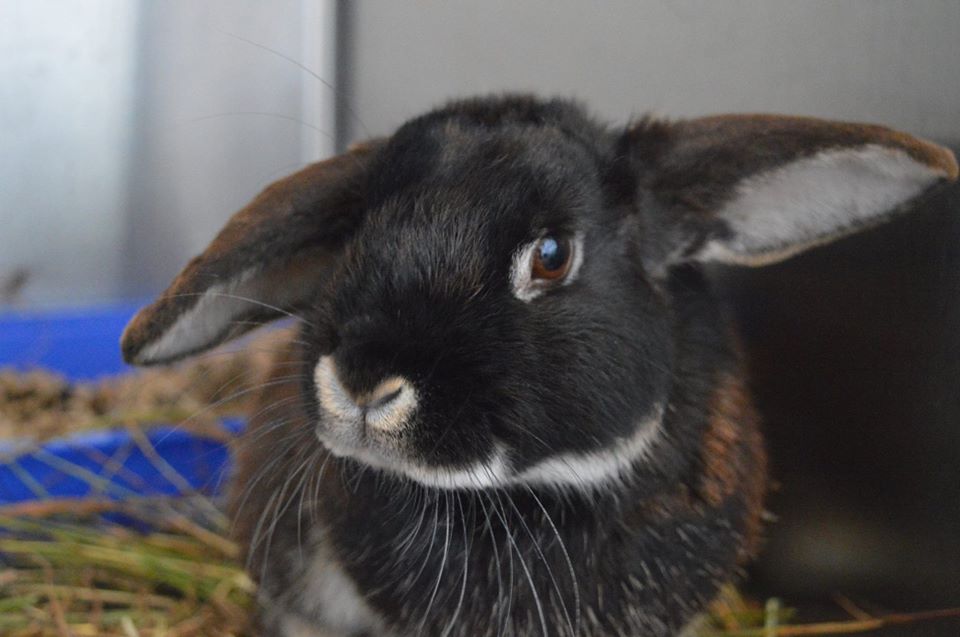Thinking of getting a bunny?

If you're thinking of getting a bunny, whilst it can be a very exciting time, there are lots of important factors to consider...
Below is a list of items you'll need to purchase:
- Suitable safe housing with an exercise run
- Food and water bowls
- Hay
- Rabbit nuggets (dried food)
- Toys (including balls and cardboard tunnels)
- Litter tray
Other important things to consider...
- Veterinary costs eg - annual vaccinations
- Neutering cost
- Pet Insurance
Is a bunny for me?
Bunnies are great fun and are very sociable. They can also be very affectionate, but they are not a cuddly pet and don't like being picked up a lot. They may scratch and bite when picked up, and if not handled correctly they can injure themselves if they fall, or are dropped. It is advisable for children under 10 to be supervised when handling them. They can live indoors or outdoors, but need to have space to exercise and play daily. If outside they must be protected against preditors and bad weather. As they are very sociable animals it is best for them to have a companion, whether that be another bunny or you, if you have the time to spend with them. Bunnies may live 10 years or more so please consider this if you are thinking of getting one.
When should my Bunny be vaccinated?
Your bunny can be vaccinated from 6 weeks old. They will then need to be vaccinated annually. They are vaccinated against Myxomatosis and Viral Haemorrhagic Disease.
When should I neuter my bunny?
We advise that both male and female bunnies should be neutered from 4 months of age and when they weigh at least 1kg. Neutering prevents females becoming pregnant and can prevent unwanted behaviour in male and female bunnies, such as aggression.
Should I get my Bunny insured?
Insuring your bunny will give you peace of mind if they ever have an illness, accident or injury. This will ensure they are offered the best possible care without you having to worry about the cost.
What should I feed my bunny?
Bunnies are constant eaters and will need a constant, unlimited supply of hay/grass. They need lots of hay/grass to keep their teeth healthy and their gut working properly. They can also have a small amount of commercial food in the form of pellets. Access to pellets should be restricted to 15 minutes in the morning and the same in the evening. Never feed museli types of dried food as bunnies will tend to pick out their favourite bits, so will not get a balanced diet. They also need some fresh green vegatables, such as kale, cabbage, green beans and carrot tops. A list of good vegetables to feed bunnies can be found on the RWAF website.
What is Flystrike?
Flystrike is when flies lay their eggs on the bunny and they hatch into maggots. These can mature very rapidly, eating into the flesh of the bunny. This can be fatal within 1-2 days.
Any bunny can get flystrike, but certain factors increase the risk
- Time of year - Flystrike is especially common during the summer, but can occur at any time of the year.
- Bunnies who cannot keep their bottom clean because they have back pain, or are overweight.
- Bunnies who suffer from gut upsets.
- Bunnies who have wounds or wet fur.
Toys
Bunnies love to chew and play, therefore it's important to get them lots of toys to keep them stimulated. Bunnies also love to hide so cardboard boxes or cardboard tunnels are great and also they love to chew them. They also love willow toys.
Valley Vets Pet Health Plan
A great way to budget monthly for your pet’s healthcare is to sign up to the Valley Vets ‘Pet Health Plan’. The health plan is paid monthly by direct debit and covers the cost of your bunny's yearly vaccinations. Those on the plan will also receive 10% off all products and services. (excluding referalls and out of hours care)





